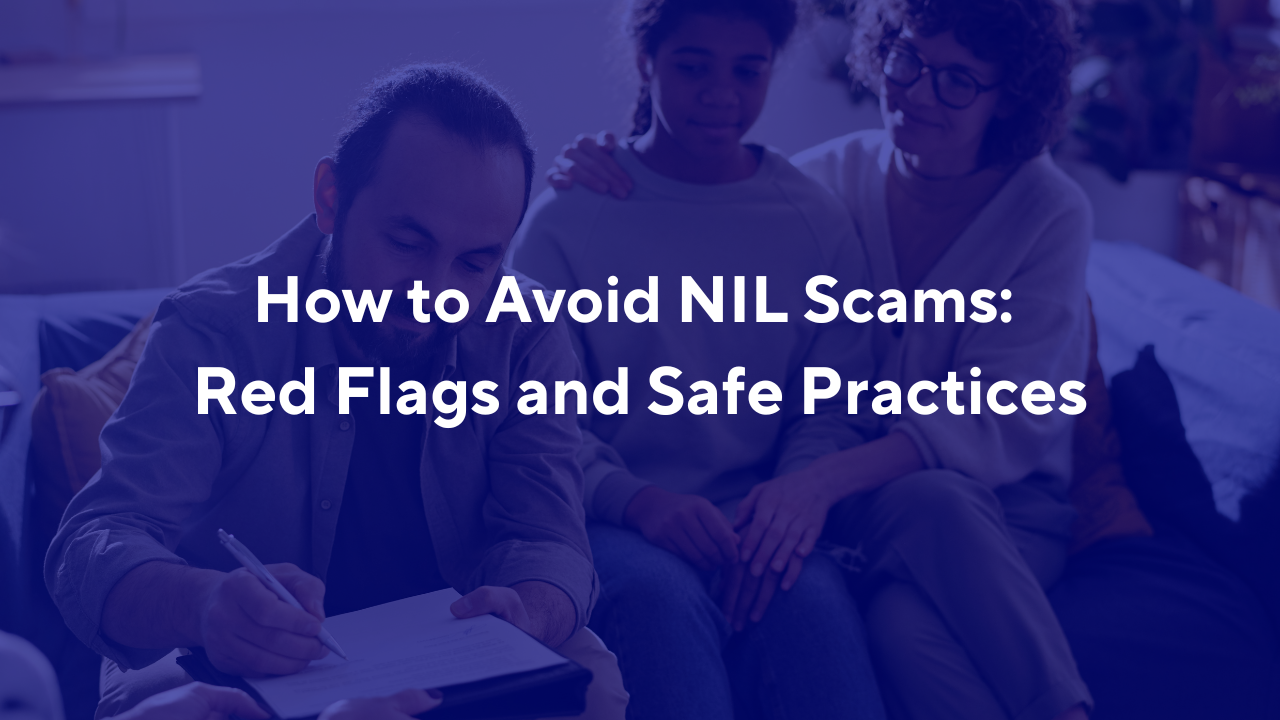How to Avoid NIL Scams: Red Flags and Safe Practices
Jul 07, 2025
Some deals sound too good to be true.
And in the fast-moving world of NIL (Name, Image, and Likeness), some of them are.
As NIL continues to reshape college and high school athletics, more young athletes are being approached with contracts, partnerships, and opportunities that can be life-changing or legally risky. And where there's money, there are always people looking to take advantage of it.
The NIL gold rush has opened doors, but it's also opened the floodgates for scams.
NIL Is Changing Lives, But Also Creating Risk
Let's be clear: NIL has been a game-changer for athletes. Whether you're a college star or a high school phenom, the ability to profit from your brand is long overdue. Social media, local business sponsorships, camps, merch drops; all of it puts control back in the hands of athletes.
But that new control comes with new responsibility.
More athletes are being targeted by fake agents, fake endorsements, and shady "representation" deals than ever before. These aren't just random DMs. Some scams are polished. Some come from people who seem legit. And they can cost athletes their eligibility, their reputation, and their money.
Common NIL Scams You Need to Know
Here are a few red flags that should stop you in your tracks:
- No contract or a vague one: A real NIL deal should come with clear terms in writing. If someone wants to "just get started" without paperwork, that's a problem.
- Upfront fees: A legit agent or marketing rep should be paid on commission, not through an upfront charge. If someone asks you to pay to "unlock deals," walk away.
- Unverified brands: If a company name isn't searchable, has no online presence, or uses generic Gmail addresses, it's likely a scam.
- Guaranteed big payouts: No one can guarantee a NIL payout. That's based on your visibility, audience, and brand fit. Overpromising is a sign of manipulation.
- Pressure to act fast: Scammers create a sense of urgency, such as "Sign now or the deal's gone." Real partners give you time to review and consult with advisors.
Who's Most at Risk?
Unfortunately, young athletes, especially those from underrepresented communities, are often targeted the most. They're eager to succeed, excited about NIL, and may not have access to experienced agents or legal guidance.
That's why parents, coaches, and mentors must be involved. NIL isn't just a legal agreement; it's a business decision.
Athletes shouldn't be expected to make business decisions on their own.
Safe Practices for Navigating NIL
Here's how to stay innovative and safe while building your NIL brand:
- Research Every Offer
- Google the person, company, or agency. Look for reviews. Ask for references. No info? That's your answer.
- Involve Adults Who Understand Business
- Whether it's a parent, school counselor, compliance officer, or mentor, get a second (or third) set of eyes before signing anything.
- Use School Resources
- Most schools now have NIL education programs or partnerships with vetted advisors. Take advantage of those. They exist to protect you.
- Work with Certified Agents
- If you're exploring formal representation, consider choosing someone with a proven track record in sports or brand management. Ask who else they represent and what deals they've closed.
- Keep the Paper Trail
- Always have a copy of every email, contract, and payment. Use professional email addresses, not just DMs or text threads, to handle business.
- Stay Educated
- The NIL world is evolving. Stay informed about state laws, NCAA rules, and school policies. Even a great deal can be a problem if it violates eligibility rules.
Coaches, Agents, and Parents Pay Attention
This isn't just an issue for the athlete. Coaches should discuss NIL protection during team meetings. Agents need to keep education at the forefront. And parents, especially those new to the sports business, shouldn't be afraid to ask questions, take notes, and say no if something doesn't feel right.
It's not your job to have all the answers. It's your job to protect the athlete from making a rushed, uninformed decision.
Trust Is Earned, Not Assumed
In 2025, athletes are brands, and brands don't cut corners.
The athletes who win in the long term aren't just the most talented. They're the most informed. They surround themselves with people who prioritize value over hype and integrity over quick money.
There's power in saying no to the wrong deal.
Because every "yes" shapes your brand, and your future.
Why This Matters
If you're building your NIL brand, don't just chase the opportunity. Protect it. The real money in NIL isn't in the first flashy offer. It's in your reputation, your audience trust, and your long-term partnerships.
That's why we built Her Court, Her Agent to guide athletes, parents, and future reps through the modern NIL era with clarity, confidence, and caution. Our course dives deeper into what to look for in an agent, how to evaluate partnerships, and how to build a brand that lasts longer than a headline.
Because NIL success isn't just about getting a deal, it's about protecting your name.

